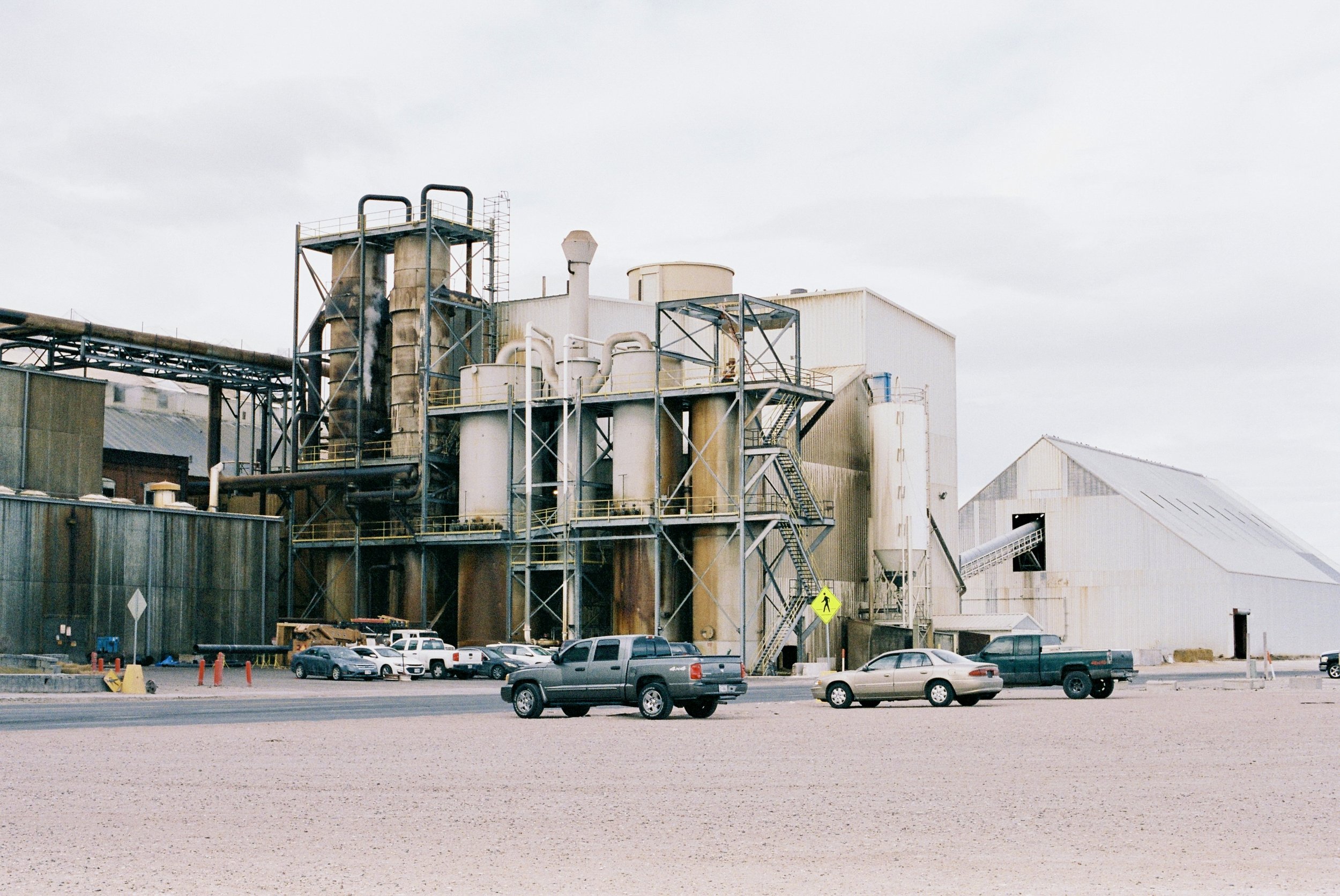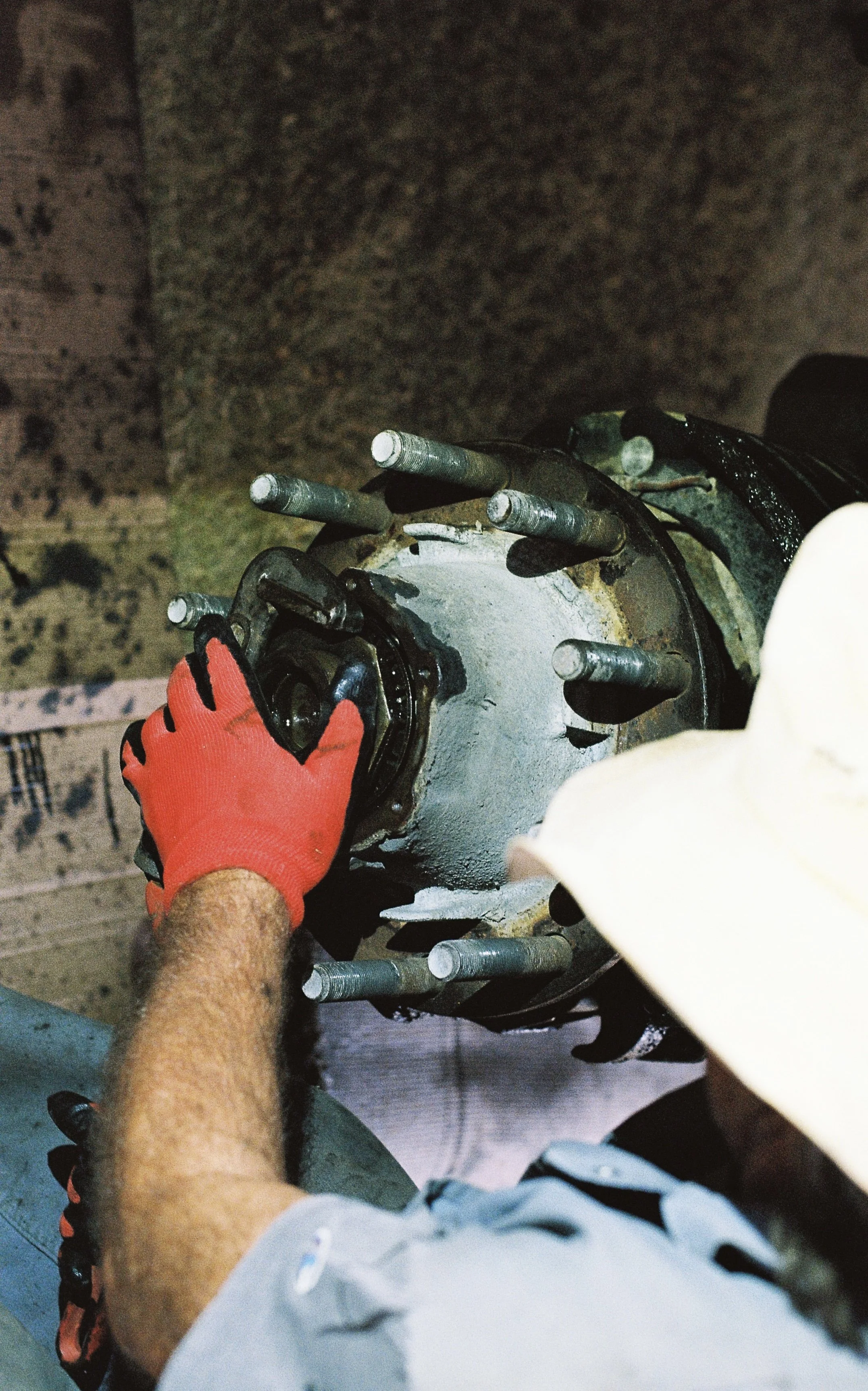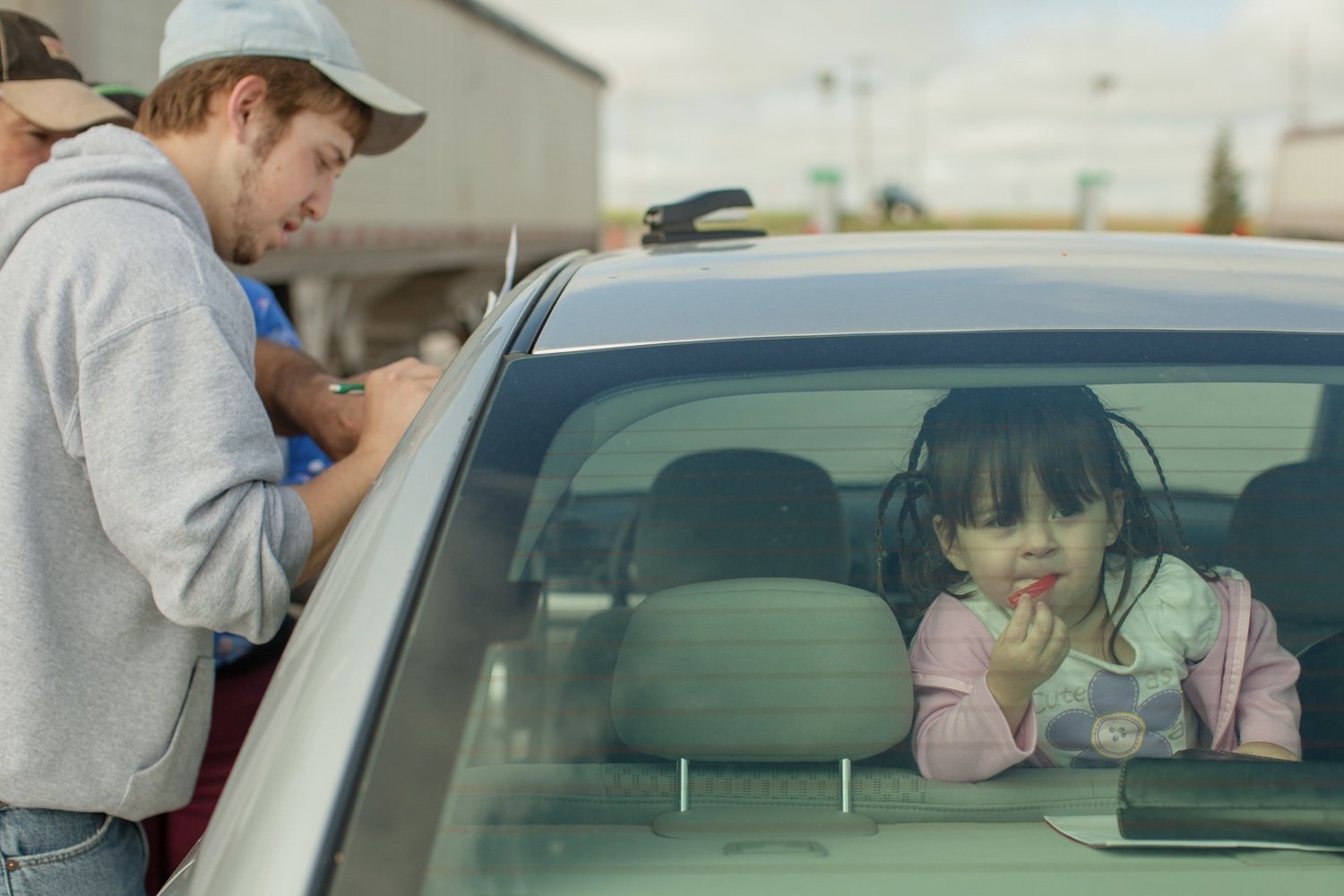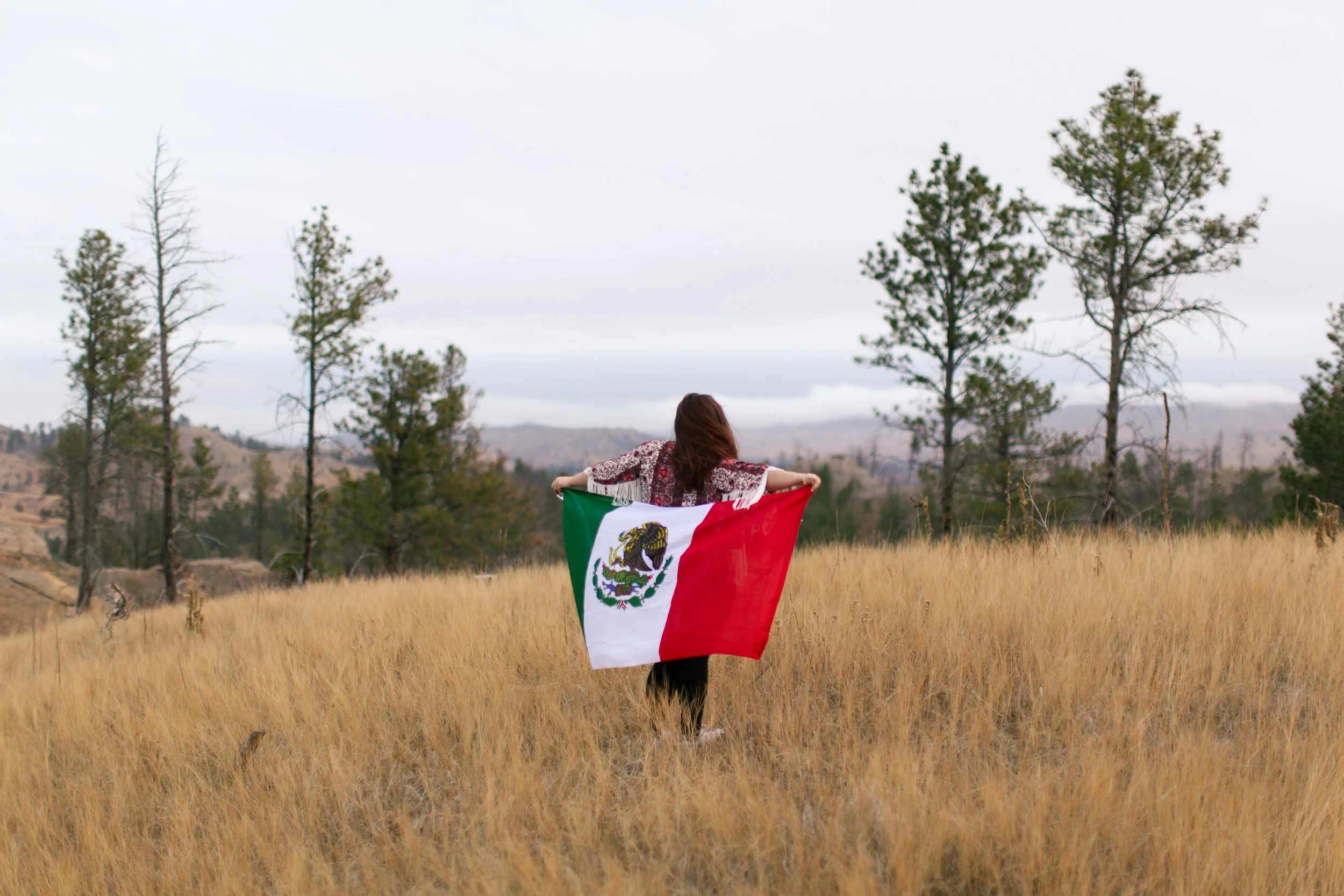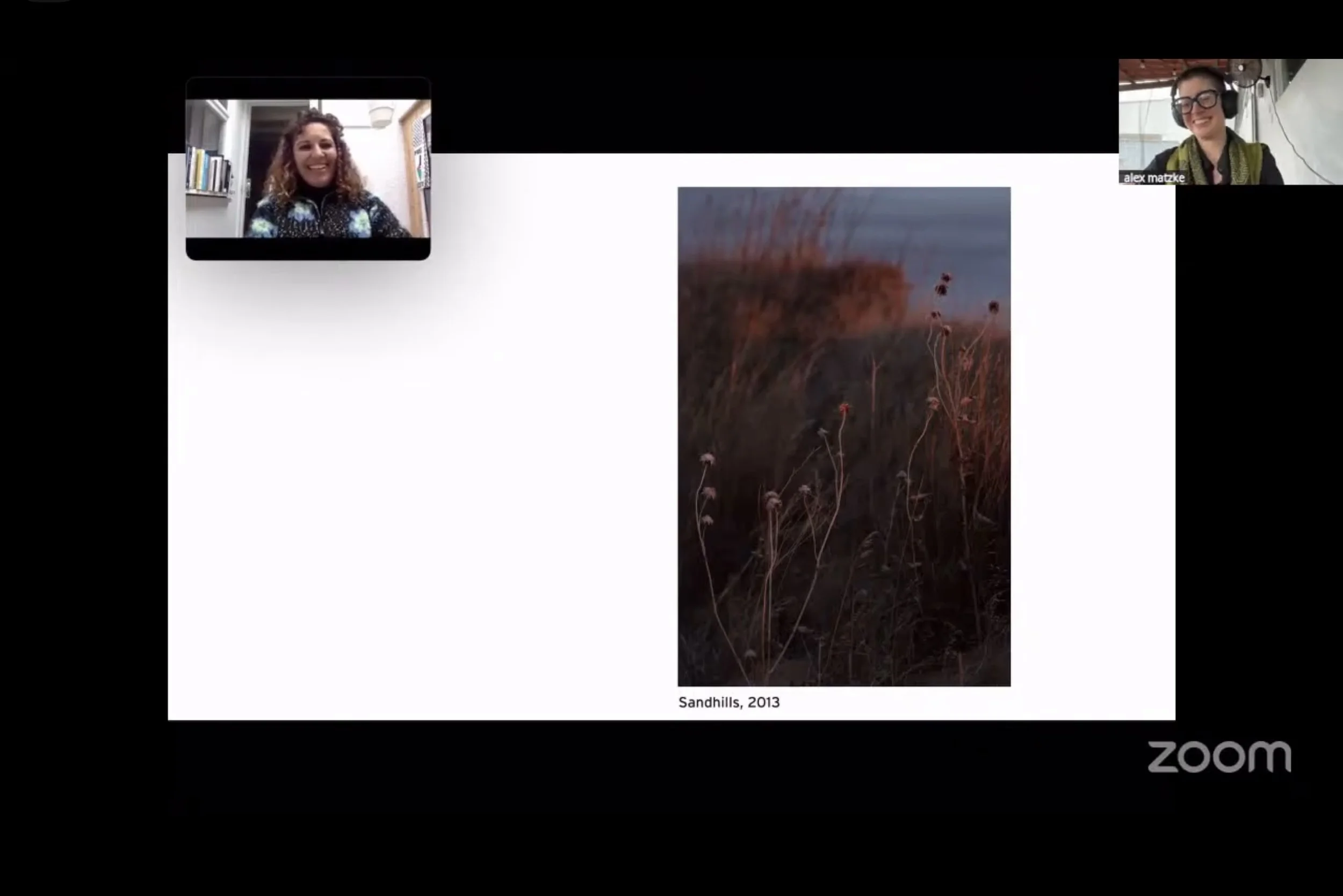NOT FOR SALE
( 2011 - present )
As artists we must address our complicity in colonial systems.
Land in Nebraska was first enclosed by waves of European settlers, stolen from its original stewards in “lawful” moves like the Homestead Act. This is how my own family came to take land and to farm in Nebraska.
Exploited migrant labor has been an integral part of commodity farming in Nebraska. The Bracero Program is just one example within a much larger machine. The program ran from 1942 to 1964, bringing farm and railroad workers into the United States from Mexico. The first Braceros came in September of 1942 for the sugar beet harvest.
“The Bracero Program must also be considered through a human lens that transcends national borders. There is no doubt that it was devastating for the families of those who departed to work in the United States.”
Elisabeth W. Mandeel, The Bracero Program 1942-1964, in the American International Journal of Contemporary Research.
"La tierra ha dado su cosecha; Dios, nuestro Dios, nos bendice. Dios nos bendecirá, y todos los confines de la tierra lo temerán."
Psalms 67: 6-7
Santos’ father was a Bracero. Santos began working as a migrant laborer at age nine and continued for over 30 years. The family once split their time between Mexico and a smattering of states where they worked in agriculture; a typical harvest season included fruit in California, apples in Washington, cotton in Alabama, and sugar beets in Nebraska. As physical labor was replaced by mechanization, Santos transitioned into other work. 2010 was the first year the family spent entirely in Nebraska.
In 2011, I began grad school studying journalism, but left because the program insisted that objectivity meant extraction without reciprocity. Sometime after I left, I ran into my professor, and he asked if I had “sold” the family I was working with. Stunned by this thoughtless choice of words, I told him, the family was “not for sale.”
The generosity, and the consent, of the family I introduce in this work is what makes it possible to share at all. Given how rights in the US are swiftly eroding, and out of an abundance of caution, I have redacted some identifying information from this and other public platforms. I look forward to a future where we needn’t worry about sharing family stories.
Capitalism distorts the realities of exploitation in agriculture, it is important to not perpetuate this harm, and instead, to clarify the nuances of what it takes to put food on grocery store shelves. Franz Fanon teaches us that to be ethical practitioners, we have to be committed to revolutionary practice. That means not functioning as if capitalism or colonialism are natural and have always existed.
This work benefited from the guidance and support of Laura El-Tantawy and Elisa Medde. For more, linked below are the 2024/25 CRITICAE presentations.




